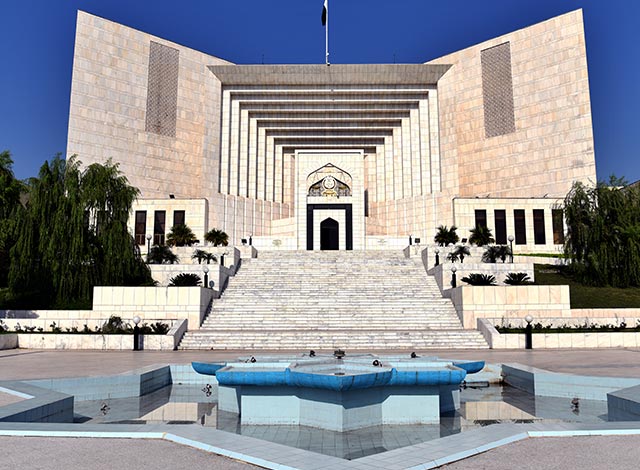News Desk
Lahore, September 10, 2023– The Supreme Court of Pakistan has taken significant steps to address the alleged agreement between the Sargodha administration and the Tehreek-e-Labbaik Pakistan (TLP) regarding blasphemy monitoring. In a recent hearing, a three-judge bench, led by Justice Ijaz-ul-Ahsan, directed the Sargodha Deputy Commissioner to provide a copy of this agreement for examination. The court also sought updates on the progress of investigations into the Jaranwala incident.
The application prompting these actions was filed by the Minority rights activist Samuel Pyara in the context of implementing decisions related to minority rights that were previously taken by the Supreme Court in a suo moto notice.
During the hearing, it came to light that the Sargodha administration had reportedly entered into an agreement with TLP. This agreement established committees responsible for patrolling areas inhabited by Christian community members to monitor and address blasphemy issues. The court noted the resemblance of this arrangement to the historical Gestapo patrols during the Second World War.
The agreement arose in the aftermath of the Jaranwala incident, during which nearly twenty churches were vandalized and set ablaze, and the homes of Christian citizens were looted and damaged. Many families were forced to flee, leaving their properties vulnerable to looting.
To address this situation, victims of property damage were advised to file compensation applications with the Punjab government. The Supreme Court also requested a report from the Punjab government regarding the compensation provided to affected families.
Samuel Pyara informed the court that following the Jaranwala incident, 38 citizens from the Christian community were arrested. However, the Lahore High Court dismissed cases against 36 of them, leading to concerns of insecurity and harassment within the Christian community.
In response, the Supreme Court directed the Punjab police to ensure the protection of the Christian community against any form of harassment. It was revealed that the Punjab government had devised a security plan for the community, but its implementation status remained pending. Consequently, the court instructed the provincial government, Punjab Inspector General of Police, and Punjab Law Department to submit reports on this matter.
Moreover, the Supreme Court demanded a progress report from Joint Investigation Teams regarding the Jaranwala incident and called upon the Federal Interior Ministry to provide a report on first information reports (FIRs) registered in connection with hate speech against the Christian community on social media.
These actions signify the commitment of the Supreme Court of Pakistan to address issues related to religious minorities and ensure their safety and protection.


